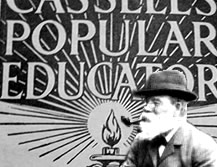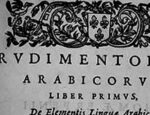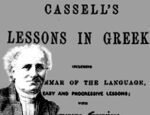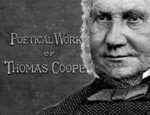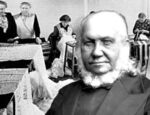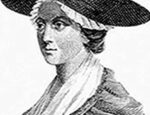Description
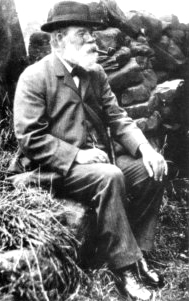 Meet Joseph Wright, the workhouse boy who became Professor of Comparative Philology at Oxford. Perhaps the most prodigious of all 19th-century autodidacts, Wright worked from the age of six as a donkey driver at a stone quarry near his home in Bradford. Illiterate at the age of 15, in 1870, he became a wool sorter and taught himself to read. He then joined a Wesleyan night school where he studied French, German and Latin, discovered his huge gift for languages, and immersed himself in the fortnightly Cassell’s Popular Educator.
Meet Joseph Wright, the workhouse boy who became Professor of Comparative Philology at Oxford. Perhaps the most prodigious of all 19th-century autodidacts, Wright worked from the age of six as a donkey driver at a stone quarry near his home in Bradford. Illiterate at the age of 15, in 1870, he became a wool sorter and taught himself to read. He then joined a Wesleyan night school where he studied French, German and Latin, discovered his huge gift for languages, and immersed himself in the fortnightly Cassell’s Popular Educator.
Wright supplemented his income by opening his own night school, became a schoolmaster, taught himself Greek, and managed to fund a PhD at Heidelberg by teaching incessantly. His thesis was entitled ‘The qualitative and quantitative changes in the Indo-Germanic vowel system in Greek’. He was appointed lecturer to the Association for the Higher Education of Women in 1888, teaching German, Historical Greek Grammar, Historical Latin Grammar and Greek Dialects at Oxford University. But his background led him to specialise in Germanic and Old English dialects; he shocked colleagues by publishing a phonetic Grammar of the Dialect of Windhill in the West Riding of Yorkshire. His commitment to recording the language of uneducated people in Britain produced his great six-volume English Dialect Dictionary in 1905, by which time he had been appointed to the Oxford Chair.
According to Elizabeth Mary Wright’s biography, The Life of Joseph Wright (1932), Wright insisted that ‘it was owing to his plebeian ancestry that he brought with him to the field of science and letters that prodigious vitality of brain which enabled him to accomplish the intellectual feats which marked his progress.’ He believed that if his forebears had done any reading, that vitality would have been sapped and their brains would have become inflexible.
He remained proud of his origins all his life, and especially of his mother, who when shown the grand buildings of All Souls College at Oxford, retorted, ‘Ee, but it ‘ould mak a grand Co-op!’ His wife, a young woman from a much more privileged background whom he met when she was studying at Lady Margaret Hall, recalled a rare occasion on which he had rebuked her. She had facetiously complained that doing philology, and consulting big dictionaries, required excessive ‘manual labour.’ Wright quietly pointed out that ‘manual labour’ meant working, for example with a wheelbarrow.
n.b. around 1880

